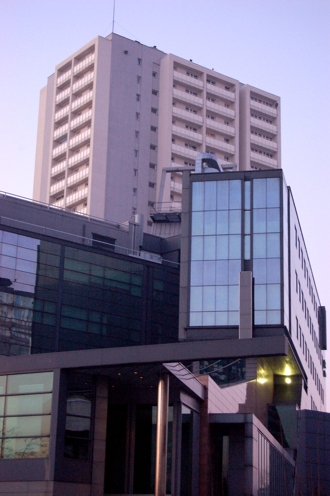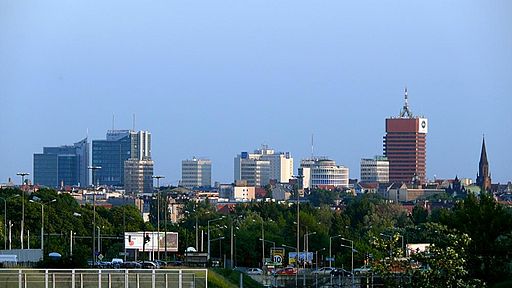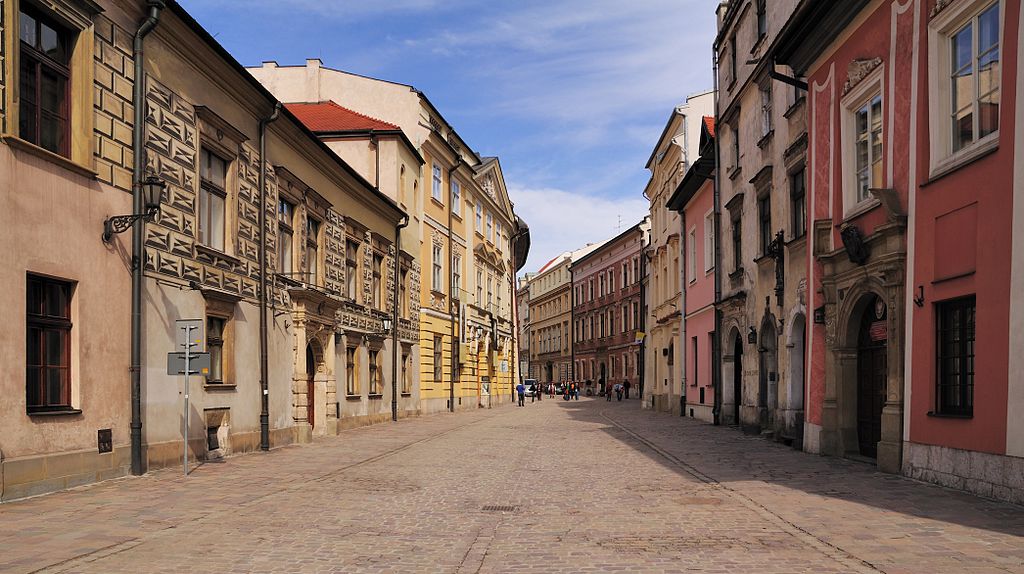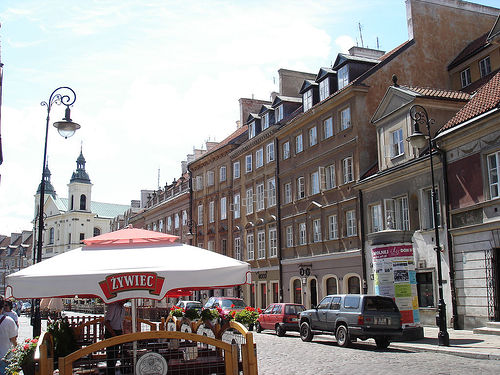Every true history must force us to remember that the past was once as real as the present and as uncertain as the future.
G. M. Trevelyan, British historian
OUR FEE STRUCTURE
This webpage will be soon updated and revised.
Q. Do we offer a free
initial consultation?
A. Yes, we do. We offer a
free in-depth consultation.
This includes a
review of client’s verbal information and documents. This enables us to
make a preliminary evaluation of client’s
case and of
the workload involved up to recovery.
Our fee arrangements
always
include a component of contingent fees, while recovery projects take
several years. Therefore, a
favorable
outcome of the initial review is a precondition for us to accept the
client.
Q. Is the clients’ information
protected?
A. With us it is. At the outset, before our review of client’s
information
and documents, we sign, for the client’s
benefit, our Confirmation of
Confidentiality. This document
identifies the name and address of the client
to whom we assume the obligation of confidentiality, identifies
relatives from
whom the client inherits properties in Poland and, to the extent
possible,
identifies these properties. After we sign this document, we expect the
client
to provide all relevant information for our no-charge review (more fully described on the Home page).
Q. When do we start
charging for our services?
A. We do business only via written agreements. Charges start only after
we have a
written agreement (”Agreement”) with the client.
Q. Who performs our work
for clients?
A. With us, from the initial free review to the very end (monetization)
the high bulk of work is done by seasoned professionals. We do not
delegate much work to juniors. This sets us apart from competition,
particularly large law firms in Poland, which delegate most of the work
on
recovery and succession related work to juniors.
Q. Are the services all
inclusive?
A. With us they are. They go from research to evaluation, through
all
required legal proceedings, right to transparent monetization of
client’s
claims. See details below.
Q. Are contingent fees
available?
A. With us they are. We always have skin in the game. We offer
different
fee arrangements,
but in all of them a significant part of our fees is contingent on
ultimate
results — monetization of clients claims.
Q. Are expenses included in
our fees?
A. No. We charge expenses separately, at actual documented cost.
Q. What constitutes billable
expenses?
A. With us, billable expenses are only out–of-pocket payments to third
parties, which we incur for the direct benefit of
clients. Billable expenses include document authentication charges,
translation
fees, travel within Poland, land surveyor fees and maps, etc., Civil
Notary's fees, court costs, other government-imposed charges and expert
reports,
if any.
Q. What fee arrangements
are available?
A. Assuming our initial free review is favorable, we offer flexible fee
arrangements, always
milestone related and subject to a cap (maximum amount) on
non-contingent fees, namely:
- Hourly Fees (non-contingent) subject to a cap, plus a success fee — a small contingent fee, payable on monetization at the end of Phase 2, at 6% to 8% of the amounts collected by the client.
- Primarily
Contingent Fees, payable on monetization at the very end of the project
plus
fixed milestone related
amounts for non-contingent fees
(also capped).
Under this arrangement, from the monetization of each property we typically receive 30% of the first $500,000 collected by client, 27.5% of the second $500,000, and 25% of additional amounts — BUT all these amounts are reduced by one-half of the total amount we receive as non-contingent fees. When the property is worth several million dollars, we charge lower contingent fees, in some instances down to 20%. - Arrangements between (A) and (B) above are possible, i.e. based on different trade-offs between contingent and non-contingent fees.
Q. Do we accept all clients?
A. No, we cannot. We cannot accept clients for whom, upon the initial
free review, we do not see a priori
reasonable prospects for recovery of sizeable assets. Secondly, if the
supported written
opinion of our specialized attorneys (generated during Phase 1) does
not confirm good prospects for recovery,
the
engagement is terminated.
Also, we do not accept clients who are not
motivated (such as clients who do not provide information in a timely
manner). Such
weaknesses usually come out during the initial review.
Q. What are our hourly fee
rates?
A. We provide our hourly rates on request. Hourly fees apply only under
the arrangement explicitly based on them. Professional fees in Poland
are no
longer low and are rising, but are still a small
fraction of fees billed in major American cities.
Q. Are non-contingent fees
capped in our projects?
A. With us they are. Under all our fee arrangements, the Agreement sets
the
maximum (and minimum) limits for total non-contingent fees payable for
the job
(the mandate) we undertake. These limits depend on the workload
involved and
the complexity of the case.
Q. What are typical caps on
non-contingent fees in our projects?
A. The circumstances vary greatly between cases. In particular, the
effort
required to succeed in Phase 2, which culminates in recovery and
monetization,
depends on a number of factors and their complexity(12).
For general orientation purposes, the caps (upper
limits) on
total non-contingent fees range from $70,000 to $180,000 — to be paid
in many milestone-related installments over several
years. The corresponding
minimum total non-contingent fees typically range from $40,000 to
$130,000.
These figures should be viewed in relation to typical
recoveries
of several million dollars.
Q. Do these figures cover
both Phase 1 and Phase 2 work of the mandate?
A. Yes, they do. The bulk of the payments are in Phase 2, that is in
the
event of a favorable legal and economic analysis based on documents
that need to be
gathered.
Q. Are there exceptions to the
general orientation figures we mentioned above?
A. Total non-contingent fees may be higher in cases that involve a
large number of heirs, who are not related to
each other
in a direct line, and who are not siblings, and in cases that involve
recovery of numerous properties that
expropriated separately, especially in different localities.
Q. Are there any other
general conditions concerning payments?
A. Yes, there are. Our Agreements are transparent. They explicate all
conditions, fees and expenses. There are no surprises.
Q. Are the payments made to
recover inherited assets tax deductible in Poland?
Are they tax
deductible in
countries where foreign claimants live?
A. For discussion of these and related tax issues see the Tax Issues page.
Q. How do the
“milestone related” payments work?
A. By definition, milestone related payments provide our clients with
control over
the entire progress of the mandate. This applies to all our fee
arrangements.
Early on in the execution of a mandate, a client makes progress
payments as in-trust deposits towards the non-contingent fees that we
earn, and
expenses
we incur, by performing work to achieve milestones specified in
the
Agreement. These progress payments are tied to a schedule-of-values (“SOV”) similar
to
such schedules used in
construction contracts to manage progress.
Just as in construction contracts, much of our work under a
mandate cannot be done until certain prior tasks are accomplished. For
instance, we cannot file succession proceedings until we have secured
the
required documents. Likewise, we cannot finalize recovery proceedings
until we
have completed succession proceedings, and so on. For a typical
comprehensive
schedule-of-values applicable to our mandates see the
Schedule-of-Values
(”SOV”) page.
Under the Hourly Fees arrangement, in the early part of the mandate
the SOV provides estimated non-contingent fees
and
related expenses for each major task. We
receive these amounts in advance, in-trust. We are
accountable for them. If on a particular task the hourly fees we earn,
or expenses we incur, exceed the related deposit, then upon our
documented request, the client remits the difference. If the deposit
exceeds actual hourly fees earned or
expenses incurred, we credit the difference to the client’s account, to
be used towards subsequent tasks.
As the execution of the
mandate progresses,
fee
payments cease to be made in advance. They turn into payments upon
reaching
milestones. These are by far the largest fee payments — under all fee
arrangements.
Under the
Primarily Contingent Fees arrangement (instead of providing estimates
of
non-contingent fees) for each major task, the SOV provides fixed
amounts of non-contingent
fees for accomplishing that task. Under this
arrangement,
only advances made towards expenses are subject to adjustments.
Q. What are the largest fee
payments?
A. They largest fee payments are:
- Non-contingent fees paid upon documented proof that we filed proceedings (proceedings to declare persons as deceased, succession proceedings, recovery proceedings and special proceedings, if any);
- Non-contingent fees paid upon documented proof that we obtained the desired judgments in those proceedings;
- Contingent fees paid upon monetization.
Q. Does our Agreement define
what constitutes proof that we filed specific
proceedings, and that we obtained the desired judgments?
A. Yes, it clearly
defines all of these proofs, namely:
- Certified copy of relevant pleadings, sworn English translation of same and copies of documents filed with such pleadings — serves as proof that we filed relevant proceedings;
- Certified copy of relevant judgment and sworn English translation of same — serves as proof that we obtained the desired judgment.
A. With us they certainly do. This transparency sets us apart from other providers of property recovery services in Poland.
By Agreement, we ask clients to authorize specific monetizing transaction only after we inform them of the market values and alternative transactions.
Also by Agreement, the monetization of any part of a client's assets requires their explicit written authorizations, with their signatures attested by a notary. Such authorizations include full description of assets to be alienated, the sale price or Indemnification to be received for them and terms of payment — usually full payment at the time of closing the transaction.
Q. How does our Agreement
define monetization?
A. Under the Agreement, the following elements (A and B)
jointly serve as proof that we successfully monetized for a client any
part of his assets in Poland. This proof entitles us to our contingent
fees:
- In case of a sale of Shares in a property, the signing of the purchase–sale contract, in the form of notarial deed, by the buyer or buyers, by persons designated in writing by the client, and by a Civil Notary in Poland(13); in case of accepting Indemnification, the signing of analogous notarial deed;
- Payment of agreed amounts into the bank accounts, indicated in advance in writing by the client.
Q. Are clients’ ownership
titles alienated before clients receive monetization amounts?
A. Not when we are involved. With us, Clients’ ownership
titles are alienated only after they receive the monetization amounts
they pre-authorized in writing.
Q. Can we illustrate a
comprehensive Schedule-of-Values?
A. Certainly. See Schedule-of-Values
(”SOV”) for a
typical comprehensive SOV applicable to our mandates. To repeat,
progress payments are tied to an SOV.
Q. Do we keep the client
informed about the progress of the mandate?
A. We do indeed, in detail. See Reporting to
Clients.
Footnotes
(12):
The scope of Phase 2 work
depends
directly on information and documents gathered in Phase 1. Phase 2
culminates in a supported
estimate of
recoverable value of
relevant
properties and a legal
opinion concerning prospects for their recovery.
The aggregate of non-contingent
fees, which is capped in a
given mandate, depends on a number of factors,
including
these: a) the number and complexity of required legal proceedings,
b) defenses to
recovery efforts we encounter, c) whether successions
claimed are in direct line or in lateral line, d) the number of
heirs
and their family relationships with the former property owner, e) the
number of
countries in which the family documents were issued, f) whether formal
or informal
changes
in spelling of names in Poland or abroad need be explained,
g) whether last
wills govern any steps of succession outside Poland, h) the complexity
of
those
wills, i) the number of expropriation proceedings to be challenged, j)
the
number of
locations in Poland where (by law) various proceedings must be
conducted,
k) the complexity of geodesic map changes, l) the complexity of
ownership transformations, m) whether lost income needs be
evaluated, etc.
(13): In Poland, as in other European countries (also in the U.S. in Louisiana, and in Canada in Quebec), a Notary is a civil law notary with broad powers, usually reserved for lawyers in other U.S. States, including the drafting and recording of real estate transactions. A civil law Notary also has the powers held by of notary public in common law jurisdictions.







